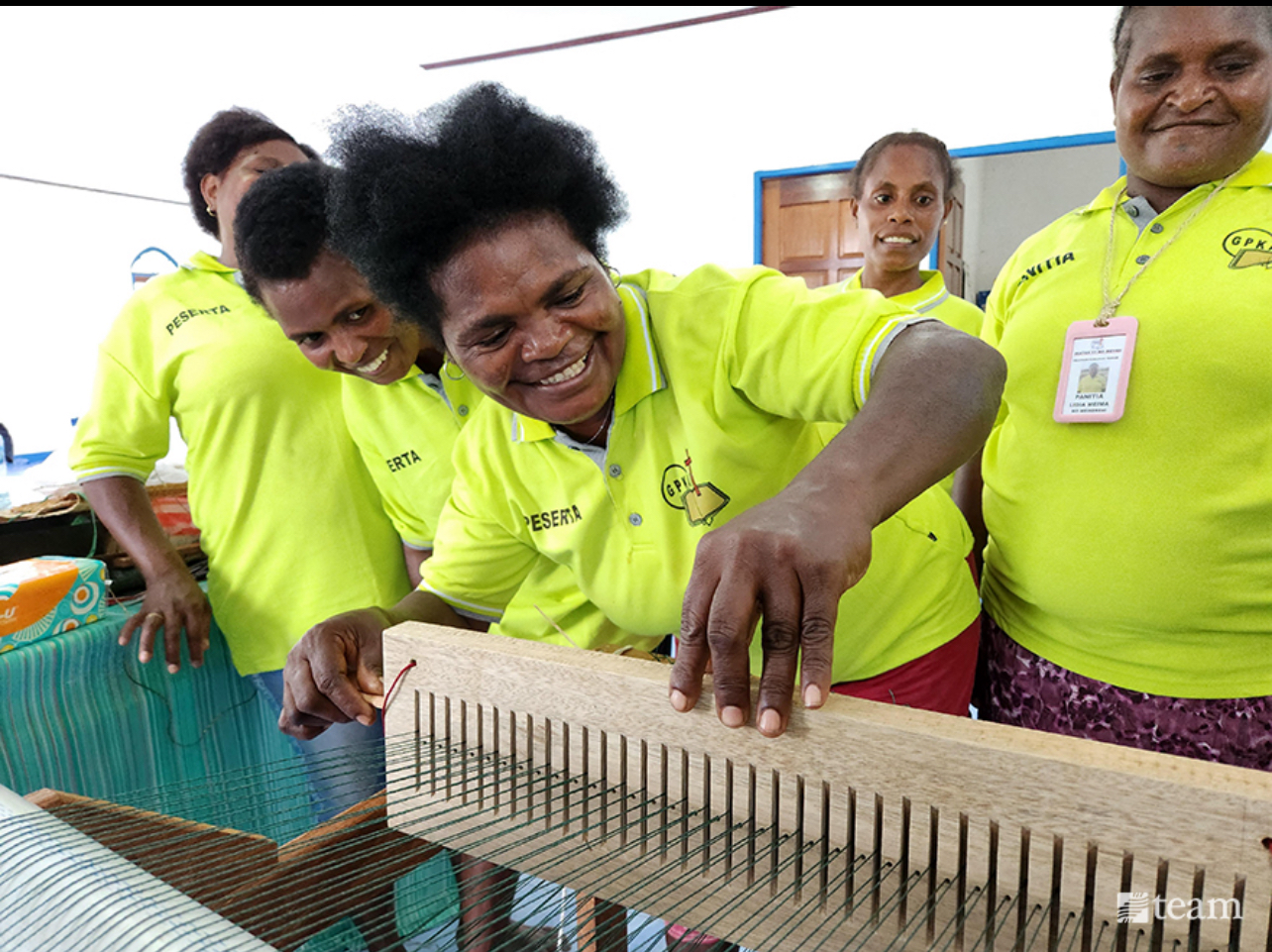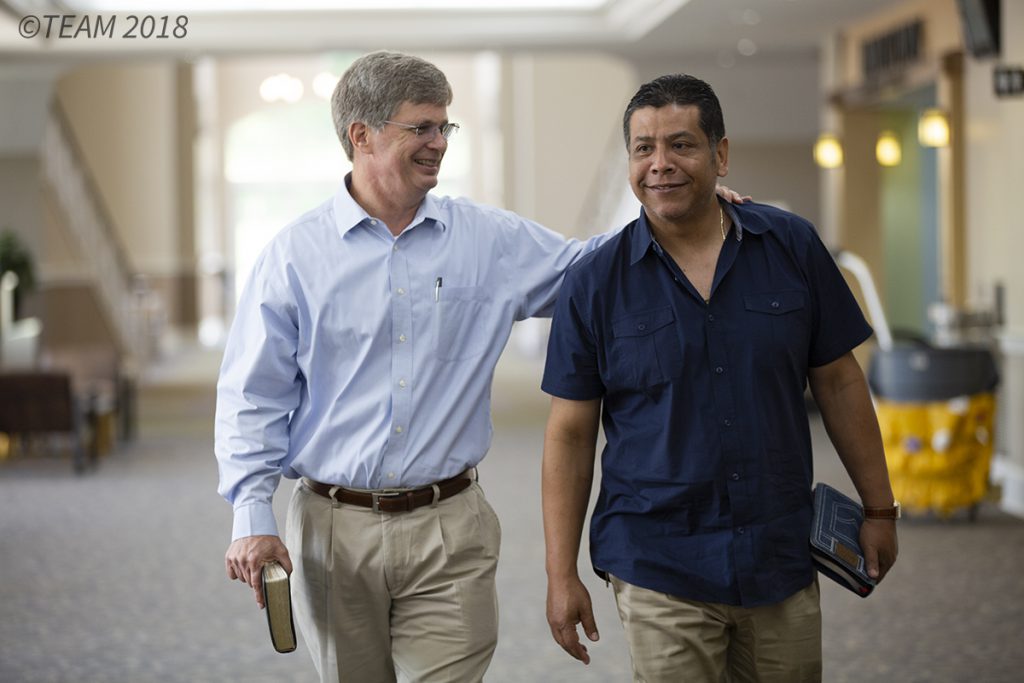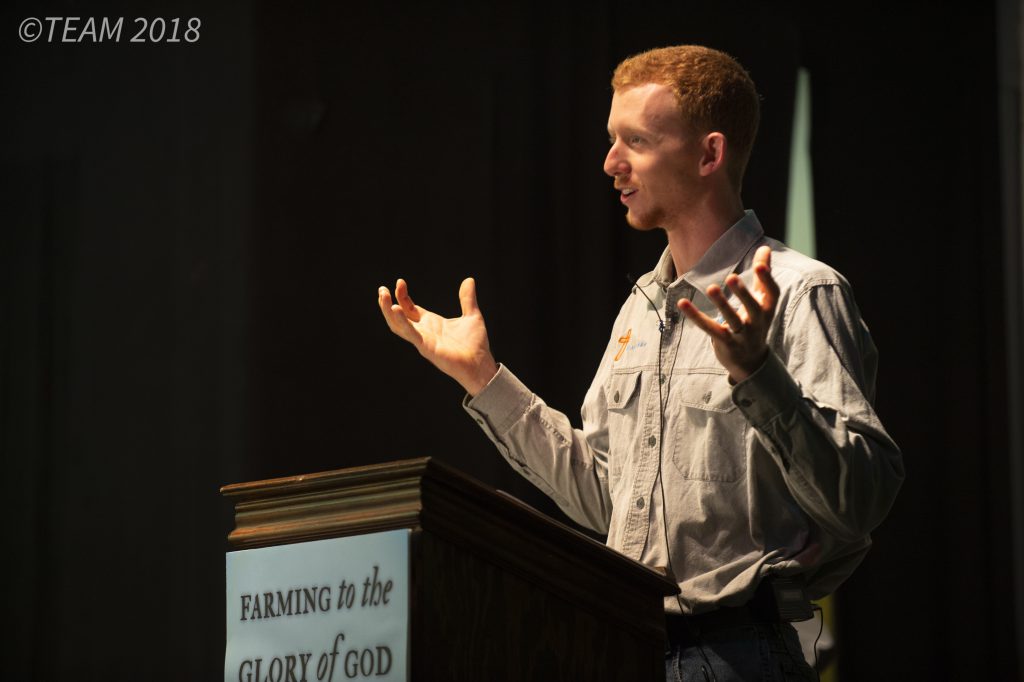
Prayer Focus
Reaching the Lost in North America [August Prayer Focus]
August 1, 2019
by Mark Watson

It’s the news no parent ever wants to hear: “Your child is sick.”
Joram and Ousa were living in a foriegn country — the violence in Syria forced them to flee as refugees to Jordan. They were just starting to settle into life there when they got the diagnosis.
Their son, Adnan, had leukoencephalopathy, a disease that affects white matter in the brain.
By the time they were able to get asylum in the U.S., Adnan’s illness had advanced to the point that he was bedridden and unable to communicate.
That’s when Joram and Ousa met TEAM missionaries Miles and Ava Douglas. The Douglases work with refugees in North America. One day they were meeting with a group of their Syrian friends at a park, and Joram and Ousa happened to be a part of this group. Joram and Ousa welcomed the Douglases to come and sit with them and their relationship quickly grew from casual acquaintances to deep friendship.
Even though Joram and Ousa are Muslims and the Douglases are Christians, Joram and Ousa welcome the Douglases into the hospital to pray for their son. The Douglases pray that God will use this friendship to reveal Himself to Joram, Ousa and Adnan.
Please join us this month in praying for missionaries like the Douglases working in North America. Missionaries in North America serve through a wide variety of ministries including ESL, refugee ministries, creation care ministries, and many more.
Pray that God will use these missionaries to further His Kingdom in North America and the rest of the world. Keep reading for specific ways you can pray.
1. Pray that missionaries will engage in cross-cultural ministry opportunities across the U.S. and Canada.
Over 360 different people groups have members living in the United States and Canada. That’s more than there ever has been before. TEAM missionary Mark Crooks says, “The tremendous impact of migration is being felt everywhere as we see the faces of people from all corners of the world arriving with specific needs and settling into the homes and neighborhoods next door to us in our cities and towns.”

People from all over the world live in the United States and Canada, so missionaries in these areas have ample opportunities to engage in cross-cultural ministry.
This means that North American Christians have an opportunity like never before to spread Christ’s love to the nations in their own backyards. And that’s what missionaries in North America are working to do. They serve through a wide variety of ministries including ESL, refugee ministries, creation care ministries and many more. Right now TEAM has 12 families working in the U.S. and Canada, and three more missionaries are coming this year.
Pray that all of these missionaries will have the courage to embrace new opportunities and strength to endure through the hard times. Pray that they will form strong relationships with people and show the love of Christ.
2. Ask God to use missionaries’ previous cross-cultural experiences to build relationships.
Cultural differences are one major barrier to building relationships with immigrants and refugees. When people come from their home culture into a North American culture, it can take them some time to acclimate and feel comfortable in the new culture. It helps to have something familiar. Sometimes that can mean befriending people who are already familiar with their home culture.
A lot of TEAM missionaries serving in the U.S. and Canada have cross-cultural experience. Maybe they lived overseas themselves or they had a personal connection with a specific culture or people group. Either way, these unique experiences help them build cross-cultural relationships where they are now. Building relationships is much easier once there is no cultural barrier to overcome.
Pray that God will point missionaries to people with similar cultural experiences. Pray that the missionaries will be able to use their experiences to minister to others.
3. Pray that supporters will recognize the importance of missionaries in North America.
Many missionaries who serve in North America have to build financial support teams, just like overseas missionaries. When we think of supporting missionaries, North American missionaries might not be the first to come to mind. This may be because we think missionaries should have a full-time job and go to church or help with some type of ministry in their off time. Or it may be because we don’t generally think of North America as a mission field.

North American missionaries rely on supporters just like international missionaries do, but sometimes fundraising can be even harder for missionaries serving in North America.
Regardless of the reason, it often makes it harder for North American missionaries to raise funds than it is for their overseas counterparts. Not only do these missionaries face the same fundraising challenges that overseas missionaries face, but they also have to work harder to prove to supporters why their work is important. This can be a very discouraging process.
Pray that North American missionaries will receive full funding for their ministries. Ask God to send supporters who will encourage missionaries in their work.
Thank you for partnering with us in prayer! Click here to get a print-out of this month’s Prayer Focus requests and praise reports”
*The names of the people you’ve helped may be changed to protect their privacy.

